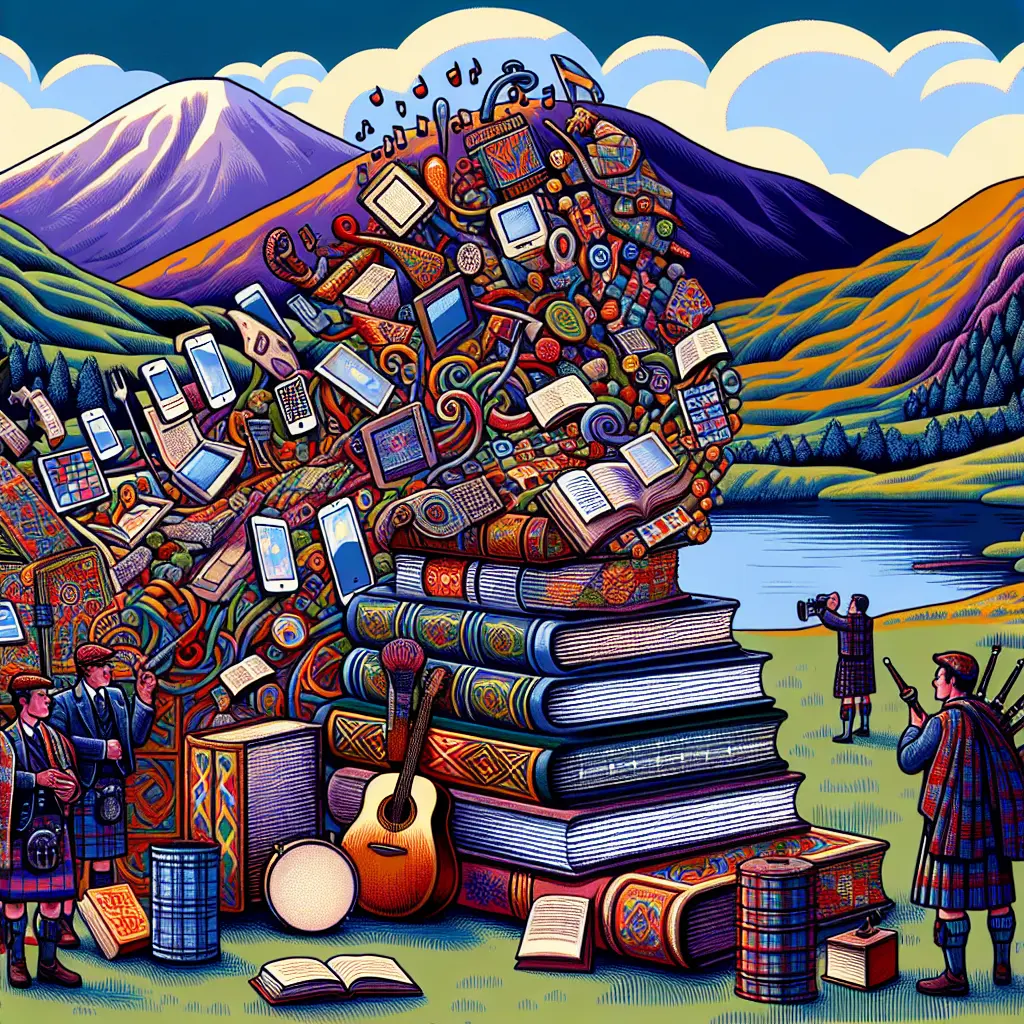
Scottish literature, with its rich tapestry woven through the ages, continues to have a profound impact on modern culture, resonating across global boundaries and influencing a wide array of cultural expressions. From the haunting verses of its poets to the deep narratives of its novelists, Scottish literature is not just a national treasure but a vital contributor to the world's literary heritage.
The Legacy of Scottish Literary Themes
At the heart of Scottish literature are themes that transcend time and place. The exploration of identity, the struggle against oppression, and the celebration of the natural landscape are recurrent motifs in works ranging from the ballads of old to contemporary Scottish novels. These themes not only offer insights into the human condition but also reflect the unique cultural identity that Scotland maintains within the United Kingdom and the broader world.
Cultural Impact of Scottish Authors
Scottish authors have long influenced global culture, their works prompting reflections on society, politics, and human emotions. Sir Walter Scott, Robert Burns, and more recently, Irvine Welsh and J.K. Rowling, have all contributed uniquely Scottish perspectives that have been embraced worldwide. Their stories and characters have leaped from pages to permeate other media, influencing films, plays, and even political discourse, thus underscoring the extensive cultural impact of Scottish writers.
Influence of Scottish Poetry and Drama
Scottish poetry, known for its poignant and often stark reflections on life, love, and liberty, has found a particular resonance in modern times. The works of poets like Robert Burns continue to be celebrated globally, with Burns Night being an example of how Scottish poetry has influenced global culture. Similarly, Scottish drama has not only enriched theatre but has also had implications for global cultural discussions, addressing universal themes through a distinctly Scottish lens.
Scottish Novels and Society
The societal impact of Scottish novels can be observed in how these narratives have sparked conversations about societal norms and values. Classic works by Muriel Spark or contemporary pieces by Val McDermid probe into the psyche of Scottish society, offering commentary that resonates well beyond their Scottish settings. These novels often grapple with questions of moral ambiguity and social justice, reflecting broader societal concerns that are relevant worldwide.
Scottish Folklore in Modern Culture
The enchanting world of Scottish folklore continues to captivate imaginations around the globe. Elements of this folklore appear in modern literature, cinema, and even in video games, demonstrating how these ancient tales have adapted to modern media. The mystical landscapes and legendary creatures of Scotland inspire a plethora of creative expressions, contributing significantly to the fantasy genre in particular.
Scottish Narrative Styles in Modern Literature
The narrative styles pioneered by Scottish writers have had a lasting influence on literature at large. The use of dialects, the stream-of-consciousness technique seen in the works of James Joyce, and non-linear storytelling are all aspects that can trace their roots back to Scottish literary conventions. These styles challenge readers and evoke deeper engagement with texts, enriching the reading experience and influencing writers beyond Scotland's borders.
Recent News Reflecting Scottish Cultural Dynamics
Recent events in Scotland also reflect the ongoing interplay between culture and societal issues. For instance, amidst discussions on public safety and community cohesion, leaders from Scotland's Muslim council have expressed trust in the robustness of local police protection. This sentiment underscores a broader narrative of Scotland as a society working towards inclusivity and security for all its members.
Similarly, issues like the national response to health crises or public service disputes reflect themes often explored in Scottish literature, such as communal resilience and the fight against institutional failure. The opening of Scotland's most powerful EV 'superhub' in Dundee points towards a narrative of progress and adaptation, themes that are quintessentially Scottish.
Contributions of Scottish Writers to Cultural Identity
Scottish writers play a crucial role in articulating cultural identity. Through their narratives, whether set against the rugged backdrop of the Highlands or the urban sprawl of Glasgow, they offer insights into what it means to be Scottish today. Their stories help forge a shared cultural identity that resonates with readers both in Scotland and globally.
Legacy of Scottish Storytelling
The legacy of Scottish storytelling is one of innovation and adaptability. From oral traditions to modern digital narratives, Scottish storytelling has evolved while maintaining its distinctive voice. This resilience and ability to evolve is perhaps why Scottish literary figures continue to hold sway in contemporary culture.
In conclusion, the impact of Scottish literature on modern day culture is both profound and far-reaching. Through its themes, narrative styles, and vibrant characterizations, it not only enriches global literature but also continues to influence various facets of modern culture. As we celebrate this rich literary heritage, we recognize how it shapes our understanding of identity, community, and resilience in an ever-changing world.
Thank you for joining me on this exploration of Scottish literary excellence. May the spirit of Scotland's timeless narratives continue to inspire and provoke thought across the globe.
Isabella Morris